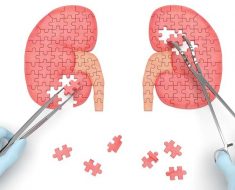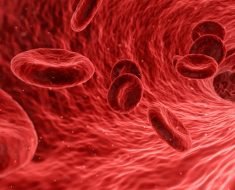(HealthDay)—Breast cancer patients who adopted a low-fat diet were more likely to survive for at least a decade after diagnosis, compared to patients who ate fattier fare, new research shows.
The study has “found yet another health benefit to eating a low-fat diet, and more fruits and vegetables,” said lead researcher Dr. Rowan Chlebowski, a research professor at City of Hope Hospital in Duarte, Calif.
“Our study demonstrates that postmenopausal women on a low-fat diet who were diagnosed with breast cancer lived longer,” said Chlebowski, who works at the hospital’s department of medical oncology and therapeutics research.
As his team noted, data from the Women’s Health Initiative (WHI) study had already found that women who ate a low-fat diet were at lower odds of developing more aggressive forms of breast cancer.
But what about the effect of such diets on survival after a breast cancer diagnosis?
To find out, Chlebowski’s group looked at WHI data on nearly 49,000 postmenopausal women tracked by 40 clinical centers across the United States.
The women were randomly selected to stick with their regular diet (a third or more of daily energy supplied by fat) or to adopt a regimen with more fruits, vegetables and whole grains, where less than 20 percent of daily energy needs came from fat.
Over the 8.5 years of the diet study, 1,764 of the women developed breast cancer. Outcomes for these women were tracked for an average of 11.5 years after their diagnosis.
Overall, survival for women who stuck with the low-fat regimen was 22 percent higher compared to women who continued with their usual diet, the researchers reported May 24 in JAMA Oncology.
Looking at death from breast cancer specifically, of the 516 women who died from any cause, 68 in the low-fat diet group died of breast cancer, compared to 120 in the regular-diet group, the researchers said.
Women who ate less dietary fat were also less likely to have died of other causes, especially heart disease. While 64 women who ate fattier diets died of heart disease over the study period, that number fell to just 27 for women in the low-fat diet group, the findings showed.
The take-home message, according to Chlebowski: “Following a low-fat diet—at any point in your life—can have tremendous health benefits.”
Two breast cancer specialists who weren’t involved in the study said the findings are of real value to breast cancer survivors.
“Whether the longer life span from diet was due to a direct effect on cancer or because of overall better health, one thing that is clear is that a healthier diet can lead to longer life expectancy for both cancer survivors and for the general population,” said Dr. Stephanie Bernik. She’s chief of surgical oncology at Lenox Hill Hospital in New York City.
Dr. Alice Police directs breast surgery at Northwell Health Cancer Institute in Sleepy Hollow, N.Y. She noted that the WHI is a very comprehensive, rigorously conducted trial.
Police said that because many of these older women had other health issues besides breast cancer, “it is very difficult to separate out the breast cancer-related deaths as specifically due to the change in diet.”
Source: Read Full Article





